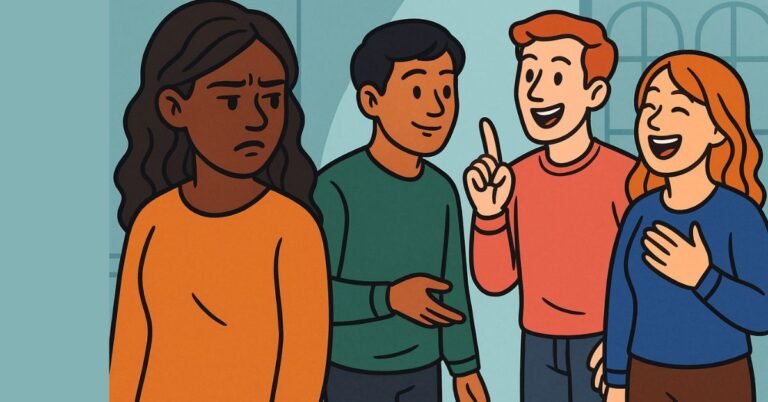Country Songs About Racism: Exploring the Genre
Country music, with its deep roots in storytelling and tradition, has often been associated with conservative values. However, it also carries a complicated, overlooked history with race. While the genre has historically avoided direct confrontations with racism, a growing number of artists are using their platforms to address racial injustice, challenge stereotypes, and amplify marginalized voices. From its origins in Black musical traditions to modern anthems of inclusion, country music is slowly reckoning with its role in America’s racial struggles.
The Hidden History: Country Music’s Black Roots
Before country music became synonymous with white Southern identity, it was shaped by African American musical traditions. The banjo, a staple of early country music, originated in West Africa. Black artists like DeFord Bailey, a Grand Ole Opry star in the 1920s, and Lesley Riddle, who helped shape the Carter Family’s sound, were pivotal to the genre’s development. However, segregation and industry racism pushed Black contributions to the margins, effectively erasing their influence. This erasure laid the foundation for country music’s later reputation as a “white” genre, a myth that contemporary artists are now working to dismantle.
Country Songs That Confront Racism
While country radio has rarely prioritized songs about race, a few tracks stand out for their direct commentary and unflinching personal narratives. These songs push the boundaries of the genre and challenge its racial norms:
“Black Like Me” – Mickey Guyton (2020)
As the first Black woman nominated for a Grammy in Best Country Solo Performance, Guyton’s raw ballad reveals her personal experiences with racism in Nashville. The song’s poignant lyrics “If you think we live in the land of the free / You should try to be Black like me” compelled the industry to confront its exclusionary practices, especially during the 2020 racial justice protests.
“Worldwide Beautiful” – Kane Brown (2020)
One of country’s few Black male stars, Kane Brown released this explicit anti-racist anthem. The song’s message of unity “We all live on the same street / Love is love, it ain’t no color” contrasts sharply with the genre’s often insular image. Brown uses his platform to advocate for inclusion in a genre that has historically been less welcoming to artists of color.
“This” – Darius Rucker (2023)
Darius Rucker, who faced resistance as a Black artist in country music after his success with Hootie & the Blowfish, reflects on both progress and lingering prejudice. In his song, he sings, “I’ve heard that this town / Wasn’t real fond of my kind.” This acknowledgment of the barriers he’s faced provides a powerful commentary on the realities of being a Black country artist.
“Try That in a Small Town” – Jason Aldean (2023) [Controversy Case Study]
Aldean’s song ignited debates about racial messaging, particularly due to its music video filmed at a courthouse with a history tied to lynching. While Aldean denied racial intent, critics argued that its lyrics “Cuss out a cop, spit in his face / Stomp on the flag and light it up” echoed “law and order” rhetoric often weaponized against minorities. The backlash highlighted how country music remains a battleground for racial narratives and the ongoing struggle for racial justice.
Indirect Reflections: Songs About Exclusion and Identity
Some country songs address racism more indirectly, using metaphors or exploring themes of exclusion and belonging. These songs, though not explicitly about race, resonate with anyone who has faced discrimination or felt marginalized:
- “Skin (Sarabeth)” – Rascal Flatts (2002):
While this song centers on a girl bullied for a birthmark, its message “She’s beautiful, so beautiful” speaks to anyone ostracized for being different, offering a subtle critique of societal norms that judge based on appearance. - “All Are Welcome” – Maren Morris (2023):
Maren Morris directly rebukes homophobia and racism in country music with her track, donating proceeds to LGBTQ+ and Black-led charities. The song’s call for inclusivity further challenges the genre’s conservative leanings.
The Road Ahead: Progress and Backlash
Artists like Mickey Guyton and Kane Brown have opened doors for conversations on race within country music, but systemic barriers remain. Black country artists still receive less than 2% of radio airplay, and songs addressing racism often face conservative backlash. For instance, despite the controversy surrounding Aldean’s song, it topped the charts, signaling that elements of exclusion and resistance to change still persist within the genre. Yet the success of “Black Like Me” and the rise of Black country festivals like “Black Opry” signal a shift. These movements indicate that the tide is slowly turning, but significant challenges remain.
Final conclusion
Country music’s relationship with race is fraught but evolving. The genre is grappling with both its past and future. While some artists continue to challenge stereotypes, the industry as a whole must confront its own complicity in perpetuating exclusionary practices. As Mickey Guyton sings: “We’re all enough / But that ain’t the narrative they’re selling.” If country music can embrace its diverse roots and truly reckon with racial justice, it may one day become a powerful force for change in America’s ongoing struggle for racial equality.







